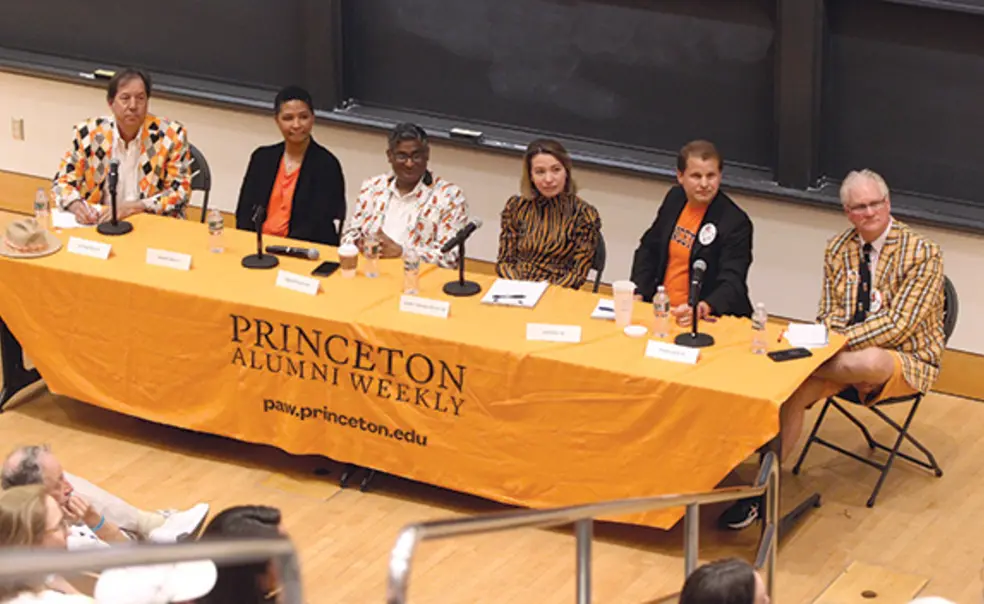At PAW Reunions Panel, Democracy Went Under the Microscope
Democracy is under threat, in the United States and around the world. That much was clear from the opening minutes of PAW’s 2023 Reunions panel, “The Challenge for Democracy,” which drew a full house at the Friend Center auditorium Saturday morning. Social media platforms reward polarization and promote disinformation — and aren’t held accountable. Traditional
media outlets are struggling to stay relevant. The dysfunction of institutions like the U.S. Congress breeds frustration and apathy.
And that doesn’t even include what National Review editor Ramesh Ponnuru ’95 called “the orange elephant in the room”: A former president who refused to accept his election loss in 2020 remains the frontrunner for the Republican nomination in 2024. “I would say that that is a problem,” Ponnuru quipped.
The panelists included two journalists who have the word “democracy” in their job titles: Griff Witte ’00, democracy editor at The Washington Post, and Frank Langfitt ’86, NPR’s global democracy correspondent. While both positions are relatively new, Witte argued that the subject has always had resonance because “the question of who gets a say in this country is one that we’ve been wrestling since the foundation.”
Other modern issues such as disinformation and conspiracy theories are not new, either. The difference is one of amplification, said Jennifer Valentino-DeVries *05, an investigative reporter for The New York Times who focuses on technology. “There’s now a reward system that is pushing them to the forefront like never before,” she said.
Langfitt added that there is a legal component to the influence of social media: While traditional media companies are incentivized to report facts and held to account when they publish something defamatory, that is not the case for Twitter, Facebook, and other platforms because they are not treated as publishers. This has enabled a “parallel reality” in key areas, he said, most notably the 2020 election.
If social media sows polarization, political parties seem happy to help it grow. Danielle Allen ’93, a Harvard professor and Washington Post columnist, pointed to the party primary structure and the reality that relatively few elections are decided in the general election cycle. In primaries, she said, “you win by dividing and conquering — you don’t win by building an actual 50% coalition of your whole electorate,” and all the money poured into campaigns “is literally buying division.”
What can we do to mitigate division and restore, promote, and preserve democracy? Allen said supporting certain electoral reforms, such as ranked-choice voting and instant runoffs, can potentially “lower the temperature” in polarized races. She also encouraged supporting organizations such as the American Journalism Project, which is working to rebuild local journalism. Ponnuru added that seeking out intelligent points of view that you disagree with can lead to greater understanding.
Witte, who spent much of his career reporting abroad, drew lessons from watching the rise of autocracies. “It’s important to remember that would-be autocrats thrive on apathy,” he said. “They love it when people disengage, they love when people say it’s exhausting, it’s depressing, I’m going to sit at home and I’m not going to do anything. … So, I would just encourage you all to stay engaged.”












No responses yet